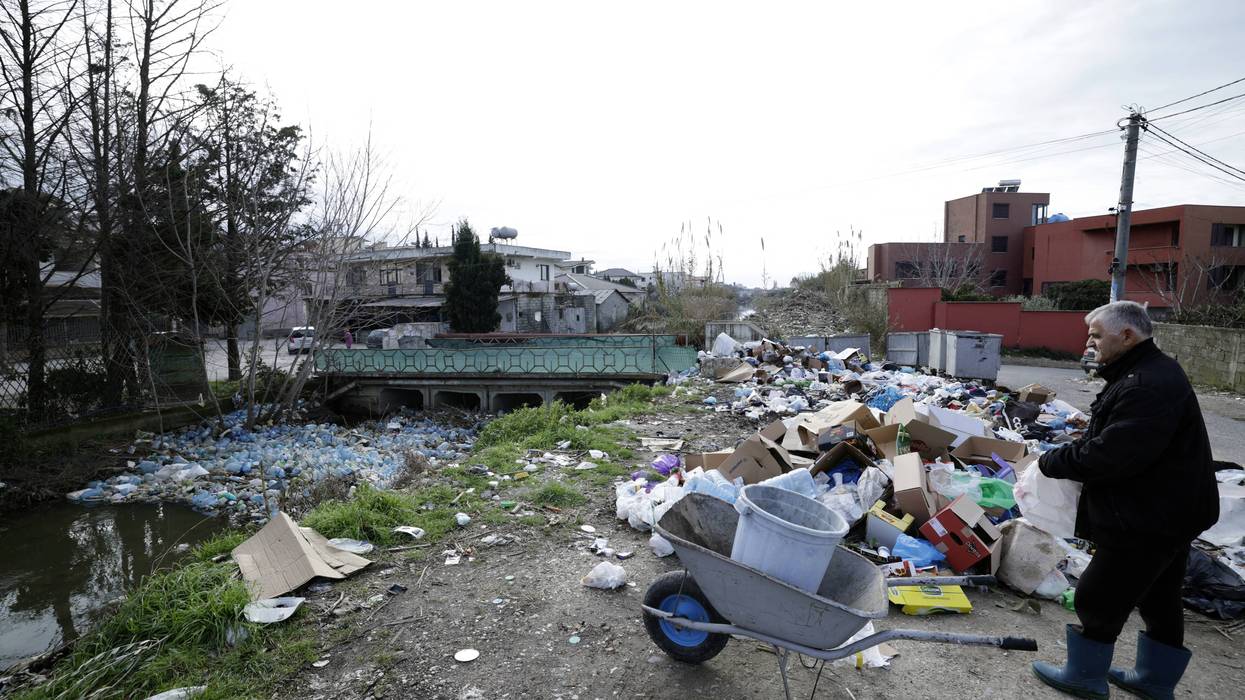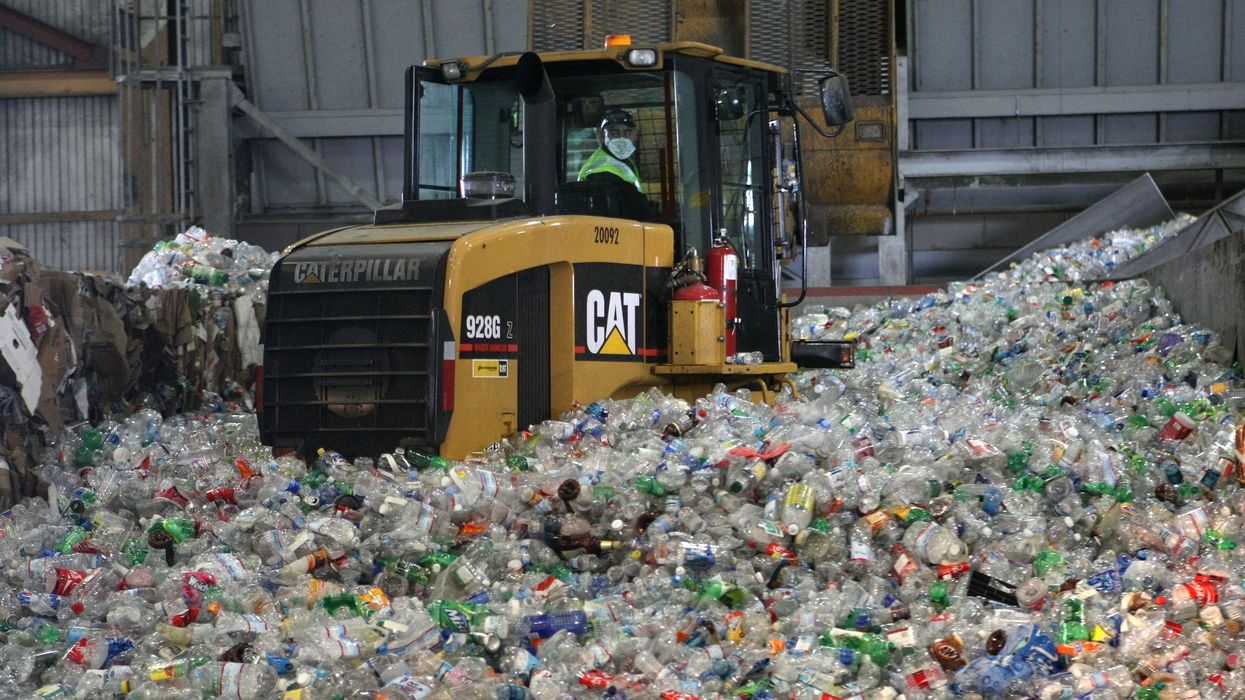Plastic-Free Friday: Renewal After Mardi Gras in a Transcultural Diasporic Tradition
Rather than framing plastic reduction as individual sacrifice, the campaign presents it as a communal act of care, rooted in culture, seasonality, and public health.
Mardi Gras is a transnational, diasporic cultural tradition rooted in Christian liturgical calendars and continually reshaped through Afro-diasporic, colonial, and migrant histories. Across cultures and centuries, the passage from winter to spring has carried a shared meaning: renewal. It is a moment marked not only by seasonal change but by intentional pause, a time to reassess habits, responsibilities, and the ways individual actions shape collective life.
In New Orleans and across South Louisiana, that pause arrives right after Mardi Gras. Carnival season, with its music, artistry, and communal joy, gives way to Lent, a period traditionally devoted to reflection, restraint, and service. Similar practices appear across faiths and cultures, from Ramadan in Muslim communities to Passover in Jewish tradition and secular observances tied to the spring equinox. Each reflects a collective understanding that cycles of abundance must be balanced by intention.
Within Christian tradition, Lent centers on three practices: prayer, fasting, and almsgiving. These concepts readily translate into environmental responsibility. Fasting becomes a restraint from unnecessary consumption. Prayer becomes a reflection on the consequences of habitual behavior. Almsgiving becomes solidarity with communities bearing the costs of environmental harm.
Plastic-Free Friday, a weekly initiative launched by RISE St. James, draws directly from these shared values. Rather than framing plastic reduction as individual sacrifice, the campaign presents it as a communal act of care, rooted in culture, seasonality, and public health. That framing matters, particularly along the Gulf Coast, where plastic pollution is a lived and often encouraged reality.
Mardi Gras Was Never Meant to Be Disposable
Mardi Gras is among the world’s most recognized cultural celebrations and is central to New Orleans’ identity and economy. Yet when the parades end, and the streets are cleared, the environmental consequences of Carnival season remain.
In 2023, Mardi Gras celebrations generated approximately 1,162 tons of waste over 11 days, according to data from the City of New Orleans Department of Public Works. An estimated 25% of that waste consisted of plastic beads, according to local waste audits and bead recovery organizations. While recovery efforts have expanded, reclaiming more than 10,000 pounds of beads during the 2025 Carnival season, these initiatives capture only a fraction of the plastic distributed each year.
Plastic-Free Friday leverages cultural timing, community norms, and shared identity to reframe plastic reduction as a public health intervention rather than a personal moral test.
Much of the remainder enters landfills, clogs storm drains, or is carried into surrounding waterways. Over time, these plastics degrade into microplastics that are now detected in soil, seafood, drinking water, and human tissue. Peer-reviewed research increasingly links microplastic exposure and associated chemical additives to endocrine disruption, reproductive harm, immune dysfunction, and elevated cancer risk.
These risks extend far beyond festival cleanup. They intersect with a deeper public health and environmental justice crisis that has long shaped life along the Gulf Coast.
Plastic Is a Public Health Issue
Plastic pollution is often framed as a waste management issue. In communities along Louisiana’s industrial corridor, it is also a determinant of health.
Plastic production relies on fossil fuels and petrochemical infrastructure that is disproportionately concentrated in low-income and predominantly Black communities along the Mississippi River. Residents living near these facilities experience elevated exposure to air and water pollution, higher rates of respiratory illness, and increased cancer risks, trends documented by the Louisiana Tumor Registry and federal environmental justice screening tools. From extraction and production to disposal, plastic reinforces structural inequities that shape who bears the health costs of modern consumption.
Every single-use item, whether a bottle, a bag, or a Mardi Gras bead, participates in that system. The connection between consumption and harm is rarely visible in moments of celebration, but it becomes clear when examined through a public health lens.
Plastic-Free Friday situates that connection within everyday life. By encouraging individuals and communities to reduce plastic use one day a week, the campaign lowers barriers to participation while fostering habit formation and collective awareness. Behavioral science research shows that recurring, socially reinforced practices are more likely to produce sustained change than isolated actions. Plastic-Free Friday leverages cultural timing, community norms, and shared identity to reframe plastic reduction as a public health intervention rather than a personal moral test.
Legal Challenges Along the Gulf Coast
Along the Gulf Coast, particularly in Louisiana, residents and environmental organizations have turned to the courts to challenge permitting practices they argue ignore cumulative pollution and disproportionate health risks. Lawsuits supported by national groups, including Earthjustice, contest permit extensions for proposed petrochemical and plastics projects in St. James Parish, where residents already face elevated rates of respiratory illness and cancer.
Through small but consistent acts of restraint, reflection, and solidarity, communities across the Gulf Coast can reduce plastic exposure, protect public health, and support those most affected by the plastic economy.
Additional litigation seeks broader remedies. Residents of St. James Parish, represented by the Tulane Environmental Law Clinic, have filed civil rights lawsuits alleging discriminatory land-use practices and calling for a moratorium on new petrochemical development. A federal judge’s decision to allow key claims to proceed reflects increasing judicial scrutiny of cumulative environmental harm linked to industrial siting.
These cases emphasize the limits of addressing plastic pollution solely through waste management. Plastic-Free Friday complements, rather than replaces, legal and regulatory accountability by addressing demand and public awareness.
Culture Endures
Mardi Gras is sustained by continuity, creativity, and collective participation. Plastic pollution imposes a lasting burden on the environment and health systems, persisting long after its causes are forgotten.
Plastic-Free Friday offers a culturally grounded and scalable response. Through small but consistent acts of restraint, reflection, and solidarity, communities across the Gulf Coast can reduce plastic exposure, protect public health, and support those most affected by the plastic economy.
As environmental challenges intensify, the path forward may not always begin with a sweeping transformation. Sometimes it begins more simply, with a pause at the end of a season, a shared intention, and a decision to choose differently, together.


